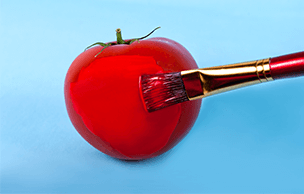
•49% of Brits want a better understanding of nutrition
•In 2019, 22% of the UK pledged to eat a healthier and more nutritious diet.
•Nutritional Therapist and Health Lecturer at The Institute for Optimum Nutrition Mike
22% of the UK are thought to have consciously pledged to have an improved, more balanced and nutritionally healthy diet in 2019 but as we begin February many are slinging the avocados in the bin, packing away their trainers and replenishing the biscuit tin, their vow for 2019 to be the healthiest year yet broken. For those that are culprits of this and are feeling exceptionally guilty, new research conducted by The Institute for Optimum Nutrition (ION) provides soothing reassurance that
A survey of 2001 UK adults has explored the UK’s knowledge
When seeking nutritional advice 21% of the UK turn to social media as a source of information despite many social media sites containing fake news and unproven advice. Retaining information from dubious sources could explain why 6% of the public believe that carbohydrates are an unhealthy component to a diet and 7% think fat should be avoided.
With false nutritional advice invading our social media news-feed, it can be challenging to obtain accurate and reliable information. So to add some clarity, Mike Murphy, Nutritional Therapist at Saffron Wellness Ltd and a Health Lecturer at ION myth-busts the most common fake food news and provides his top tips on how to seek out the most reliable nutritional advice.
Myth 1. Eating fat makes you fat…
In fact, the opposite can be true. Low-fat diets are ineffective at long-term weight loss. Our brain is more than 60% fat and the fat in our diet helps to promote satiety and a more stable metabolism. The trick is to focus on healthy fats such as those found in nuts and seeds, oily fish like salmon or mackerel as well as extra virgin olive oil; and to not eat these fats in the presence of too many starchy carbs.
Myth 2. We need to drink milk for strong bones…
Whilst it’s true that dairy products are high in calcium, so too are many other foods; Dark leafy green vegetables such as Kale have comparable calcium levels while sesame seeds contain more than eight times the calcium of cow’s milk, and both these sources are also richer in Magnesium and Vitamin K which are also needed for strong bones.
Myth 3. Eggs are bad for my cholesterol…
Although egg yolks are high in dietary cholesterol, they are chock full of important nutrients and the advice to restrict their consumption has now been eliminated because they don’t actually raise your blood cholesterol much. Cholesterol is one of the most important biochemicals in the body and only a small amount comes from our diet – most of the cholesterol we need is made by our liver and consuming eggs has actually been shown to improve HDL (good) cholesterol.
Myth 4. Red meat is bad for you…
Meat has been getting a lot of bad press lately. Putting the environmental argument aside, the World Health Organisation have
Myth 5. Salt is bad for you…
Sodium is an essential mineral that we cannot survive without. The problem is when we eat too much of it, as studies do link high salt intake to high blood pressure. The real issue though is the source of salt in our diets. Many processed foods are very high in salt and so people who consume too much salt are typically guilty of consuming too many processed foods which are generally unhealthy and lack nutrients. If we base our diet mostly around unprocessed foods we don’t have to worry about salt.
Tips on how to seek out reliable nutrition information…
Tip 1:
Current government guidelines around diet, health
Tip 2:
For those that want to go deeper, one of my
Tip 3:
Optimum Nutrition Magazine is a free online e-magazine for those interested in the latest news and research around nutrition and its impact on health and wellbeing. It also has some great recipes and is absolutely worth subscribing
Tip 4:
Lastly, it’s important to
If you need



























